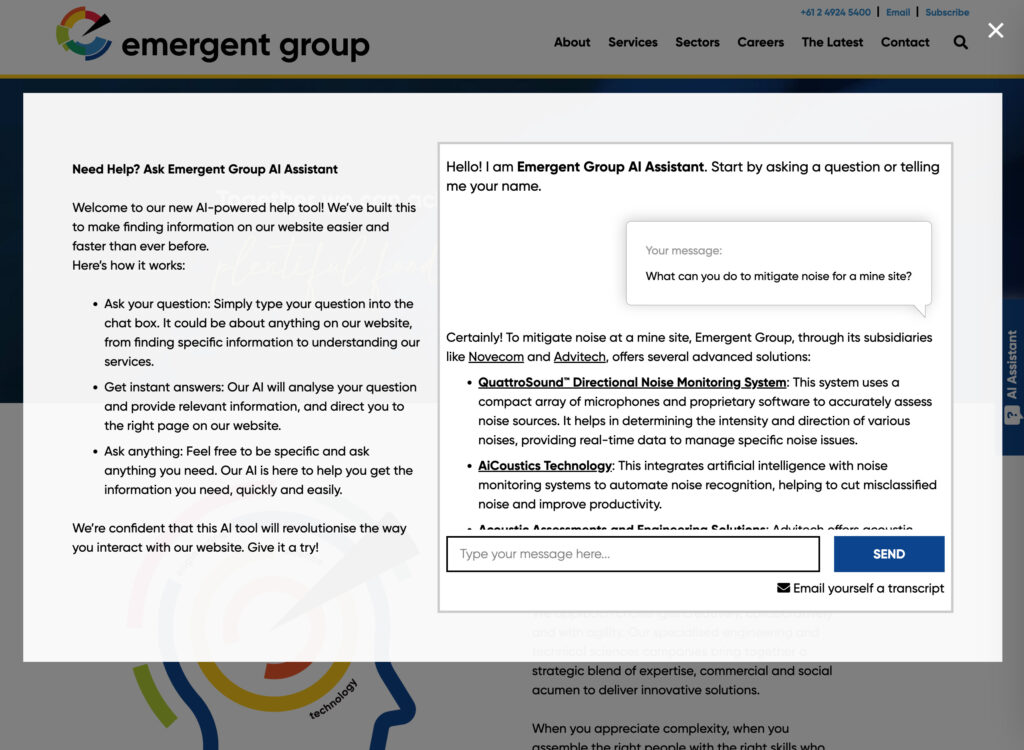Podcasts have become a major trend amongst many audiences, especially individuals in business. Many business owners and entrepreneurs are now turning to podcasts as a way to showcase their brand and personal stories. This is due to their easy consumption nature, creation of personal connections, multichannel strategy appeal and increased traffic generation.
This year I’ve become an avid podcast listener myself and am appreciating the increasing wealth of knowledge available about a number of perspectives on topics I may not have been aware of. Surprisingly, some of these have been particularly relevant to my university studies and enhanced knowledge application at HyperWeb.
A recent podcast I found beneficial and would like to comment on is one from The Jack Delosa Podcast series: How Booktopia Grew From $10 to a $113 Million Company in a ‘Dying’ Industry. This was relevant as Tony discussed growth strategies that were useful in the successful growth of Booktopia. The three that stood out to me were personal growth and pivoting, investment in automation and delegation and communication and partnerships = trust.
Tony’s main idea for growth was stepping out of his comfort zone, being advantageous and delving into more complex business strategies found in the external business environment. Tony delved into the importance of pivoting.
Tony actively went out into a community with his current entrepreneurial and high sales abilities to become profitable. Using his “best salesman skills” he experienced failure. Rather than offering what he knew, Tony takes the time to understand the sophisticated needs of consumers and offers an alternative service which was profitable. This example of changing business ideas and delving more into marketers’ ideas, demonstrates the concept of pivoting. There have been times he has failed to understand why certain business goals have not been fulfilled within Booktopia. However, he has shown an effort to pivot actively in the industry, with bigger goals in mind. Further, Tony focused on other unused skill sets which revealed success. He emphasises ‘‘return on investment’ happens through personal development of the entrepreneur and pivoting.
For a small business owner, it is beneficial to become more engaged with the community and delve into untouched needs and wants. It is important to be efficient and ensure enrolment in personal development courses to unleash a broader skill set and raise awareness of other business ideas. Additionally, this idea could be applied to assess current internal business strategies on a regular basis and improving on a small scale before making larger changes. Many small business owners’ do not realise that often pivoting can be crucial to long term success.
Tony expresses the need to invest in automation and understand delegation of business practices. The entrepreneur focuses on using their skills to build their own content systems and algorithms for reordering and pricing to ensure growth of Booktopia in a cost-efficient manner. Due to the scale, Tony expresses his understanding that it gets to a point where you need to outsource to avoid diseconomies of scale and invest “buy vs build”. By doing this with other systems within Booktopia, the company has been able to spend time investing funds into other areas of the business as well as ensuring resources are used accordingly.
For those in small business, it would be ideal to assess current processes and capabilities through key performance indicators and look at potential outsourcing options if costs or time allocation is not being delegated efficiently. By doing these things it will assist growth for long term business objectives.
A major contributor to the successful growth of Booktopia was to place a high focus on transparency and building trust in the online business environment for consumers. Nash actively put Booktopia’s businesses name, address and phone number of the business on the webpage for customers to make direct contact with the business. He delved further into having the logos of partnering businesses such as The ABA and the NAB. To demonstrate transparency and build a sense of trust, it’s often small initiatives which most businesses choose not to disclose or offer such personal information.
When applying it to small businesses, it would be ideal to ensure that you remain focused on understanding consumer’s need to hold a strong degree of trust. To do this the main focus would be to establish partnerships with credible brands that will help your business and disclosing these to consumers. Through offering direct and immediate contact methods to the company rather than just an email generated response, this would increase levels of consumer engagement and increase profitability, particularly in the online shopping industry.
The team at HyperWeb are going to be reviewing more podcast’s around topics related to business growth, strategy, marketing and web development. If you have any podcast recommendations, connect with us via our Facebook, LinkedIn, Twitter and Instagram.




